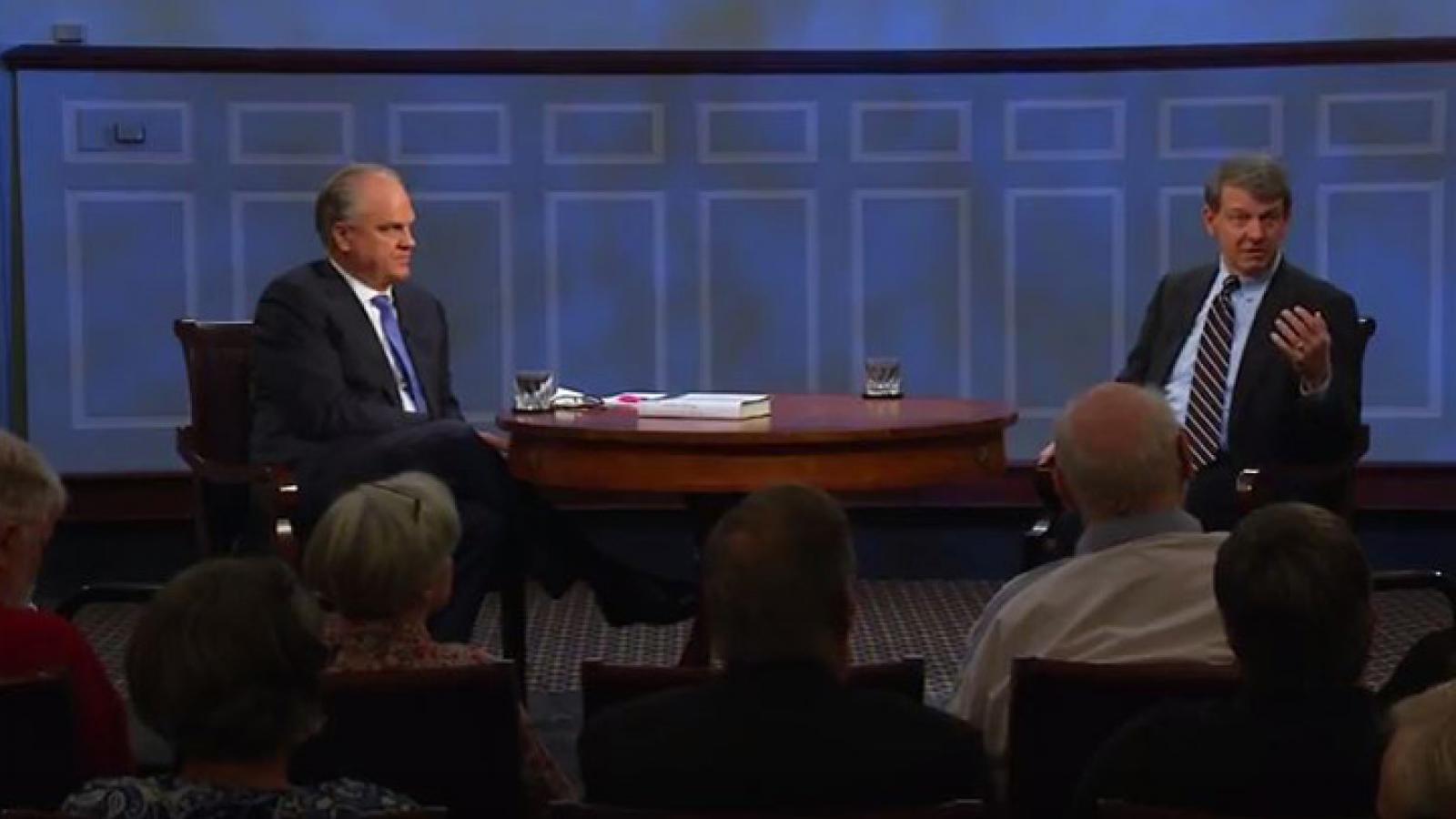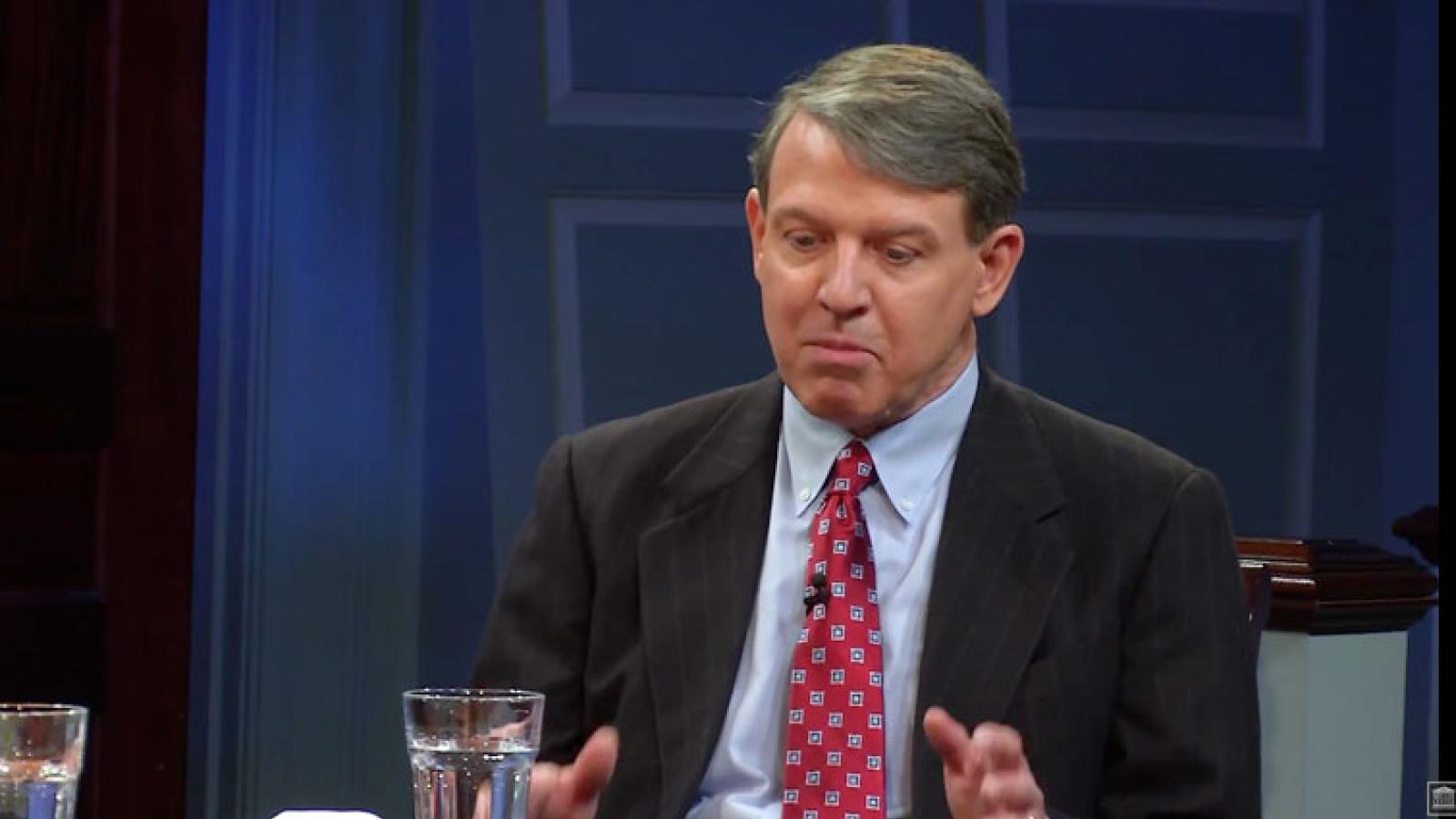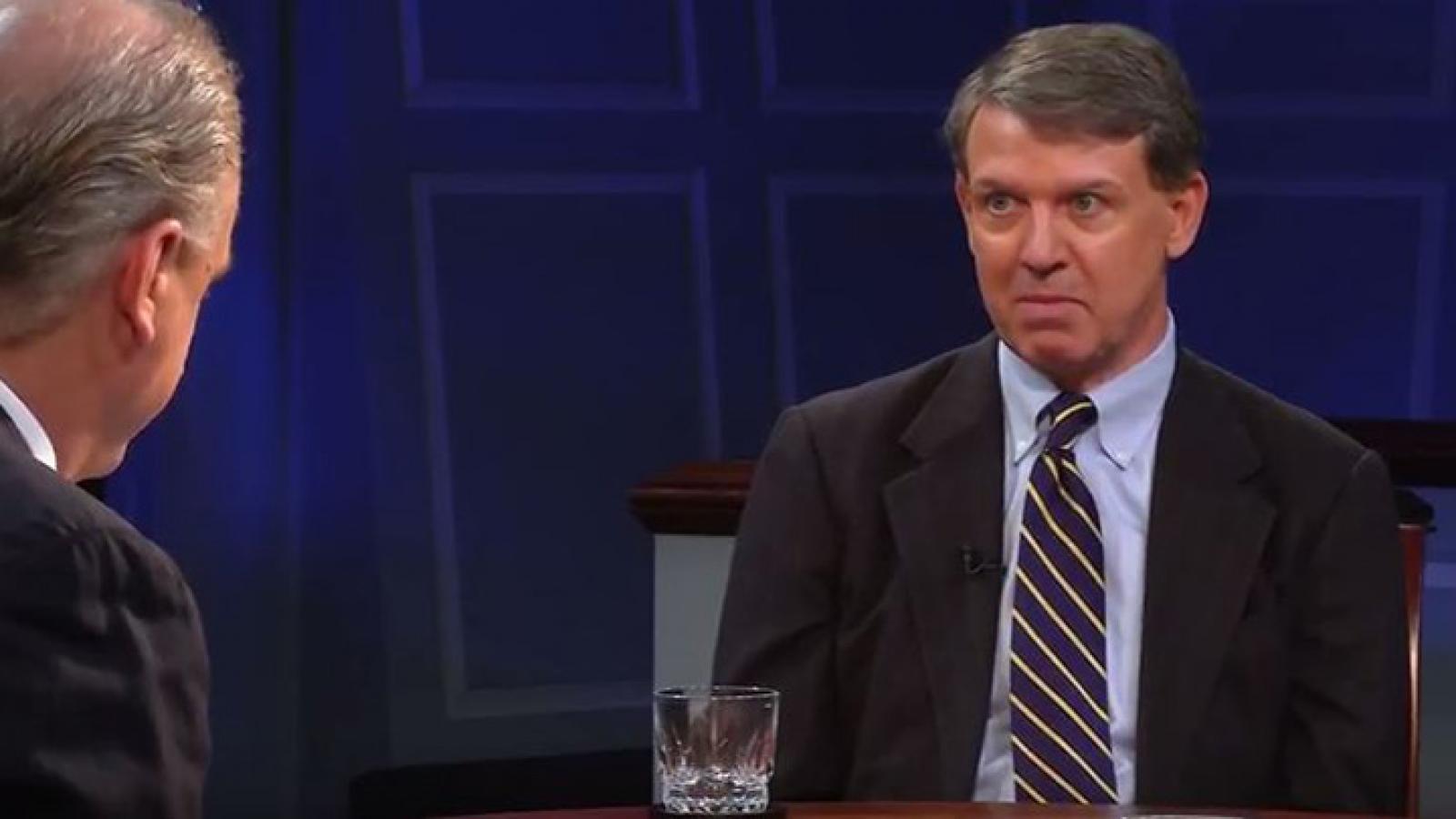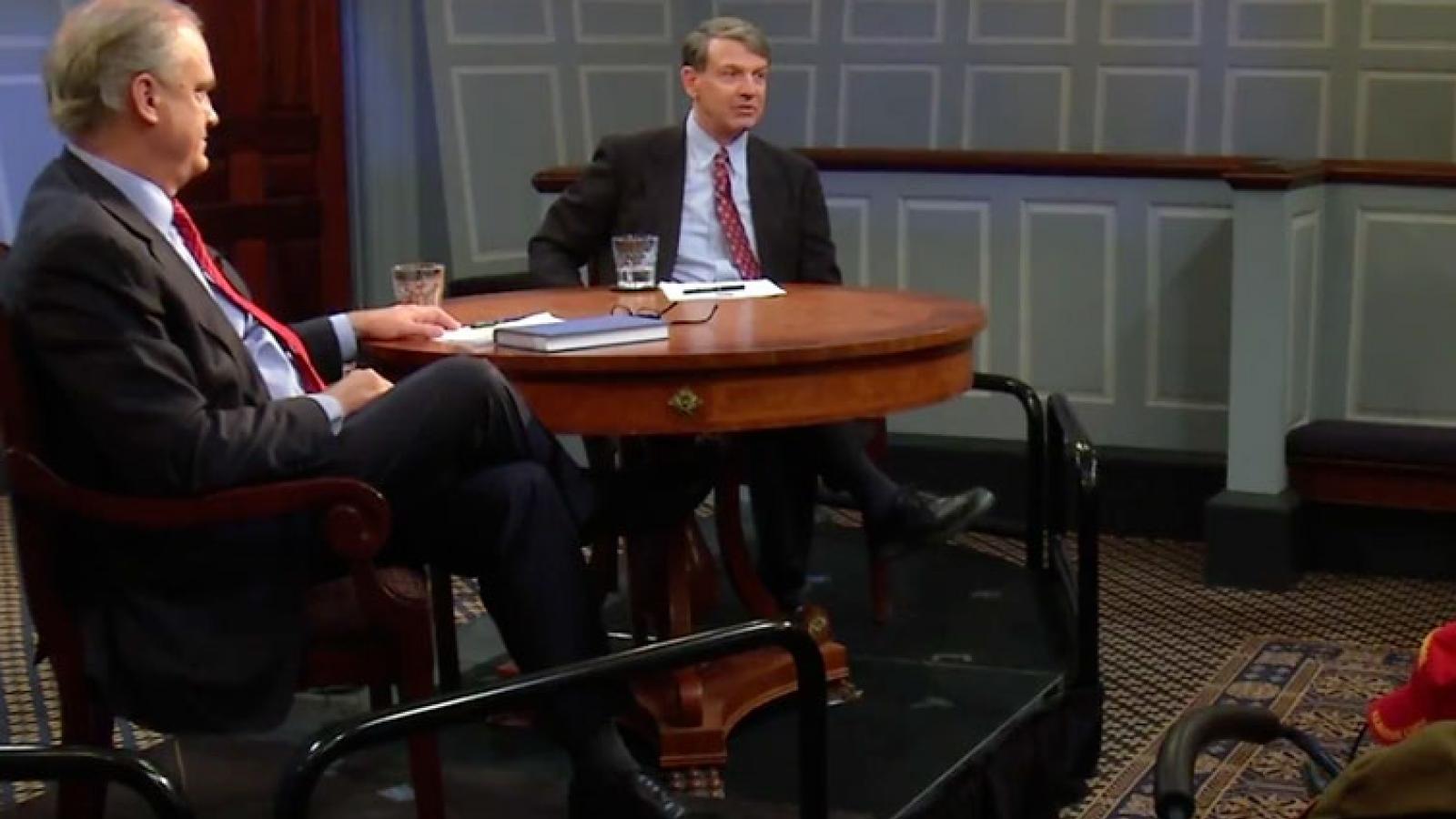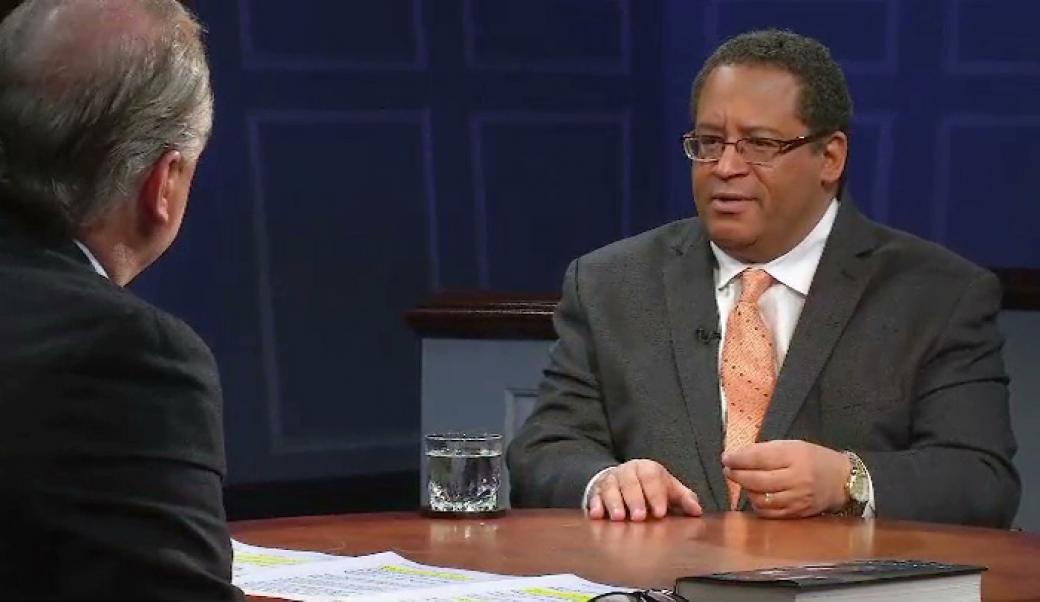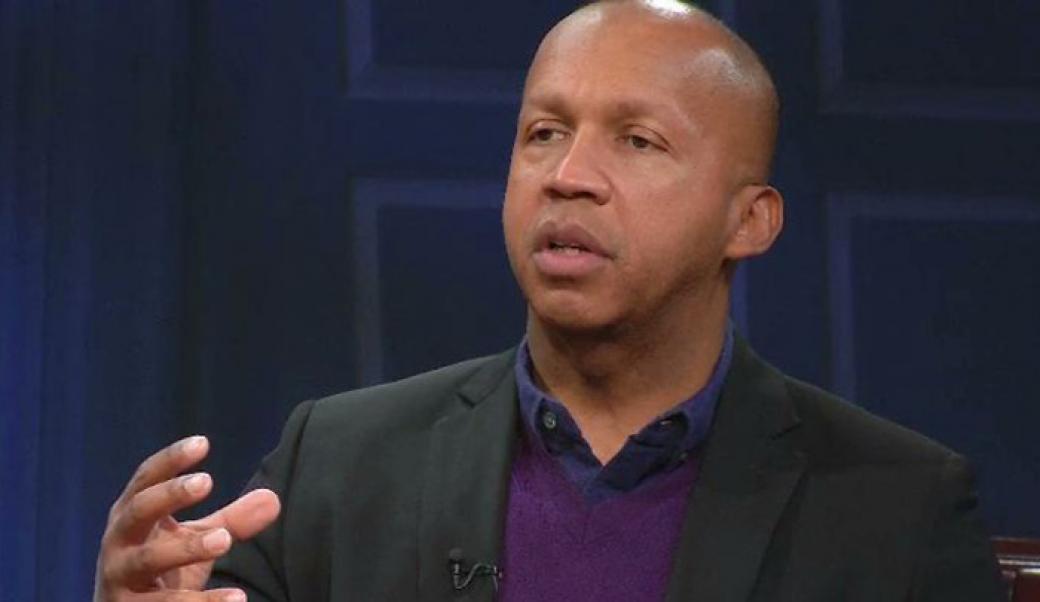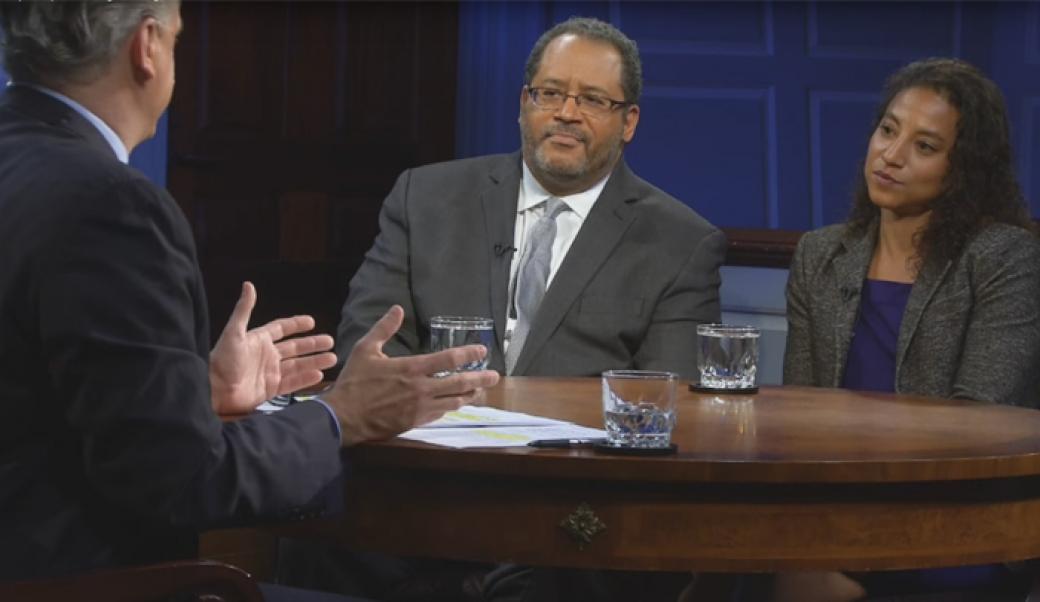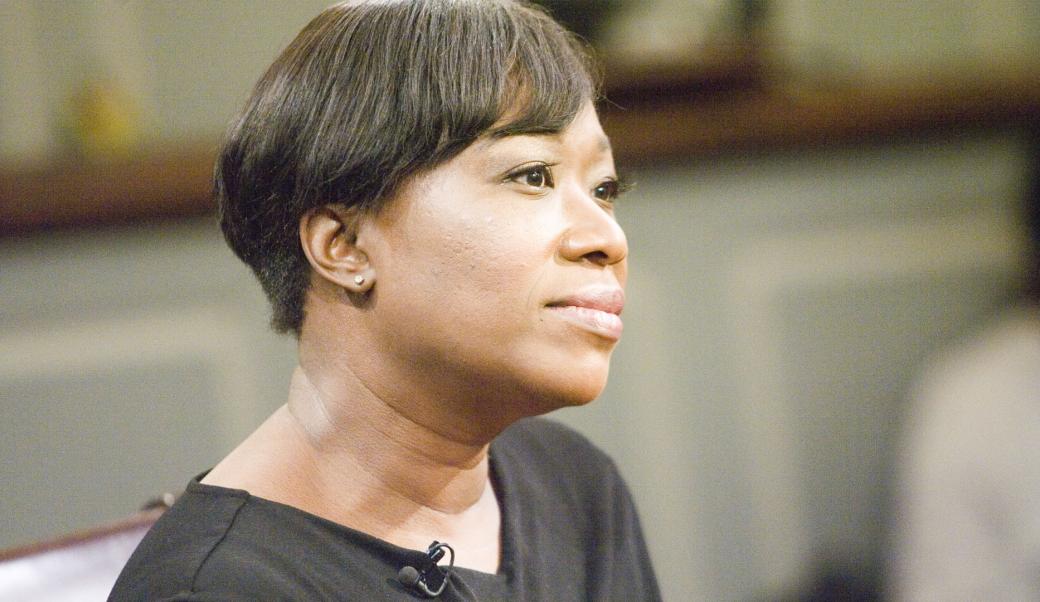About this episode
March 04, 2017
Russell Riley
The dilemma of race and the nation’s history of racial exploitation has challenged every American president. But what does President Donald Trump think about race? How will he react in the event of a questionable police shooting or attack on an officer? Are there any lessons from the tortured history of past presidents and their usually poor handling of racial issues? Here we dive deep into the history of presidents and race with Miller Center historian Russell Riley, one of the nation’s foremost authorities on the contemporary American presidency and the politics of race.
Race and Racism
First Year 2017: Race and the bully pulpit
Transcript
Douglas Blackmon: Welcome back to American Forum. I’m Doug Blackmon. We can’t know exactly what will happen or what our president will do at the time, but the issue of race will inevitably confront the new presidency of Donald Trump, and it probably won’t be long before that happens. But how do we know that? Because the dilemma of race and the contradiction of our nation’s commitment to liberty but history of racial exploitation has challenged every American president. What does President Trump really think about race, though? How will he react to a questionable police shooting that spurs new protests or an attack on white supremacists marching through an urban area, and are there any lessons for him, or all of us, to draw from the long and tortured history of presidents and their usually very bad handling of racial issues? It’s fair to say that President Trump’s candidacy triggered more worry about his racial attitudes than any major presidential candidate since Alabama segregationist George Wallace won five states during the 1968 primaries. Especially upsetting to many were President Trump’s coarse words about immigrants as rapists, refugees as terrorists, black neighborhoods as hellholes, and his sharp criticism of protestors in Ferguson and Baltimore. The Root, a website of African-American culture spun off from The Washington Post, had a perhaps overheated headline that read “Donald Trump: Racist-in-Chief,” yet, to be fair, President Trump said on election night that he wanted to be the president of all the American people. He emphatically says he is the least racist person. With his strong basis of support among struggling, white, working-class Americans, could President Trump be a bridge between that group and racial minorities? After five police officers were killed in Dallas last summer, President Trump called for love, compassion, and leadership to pull through these tragedies. And after watching a video of a black man named Terence Crutcher during a peaceful traffic stop in Tulsa, Oklahoma, in September 2016, then-candidate Trump said something that didn’t get much attention at all. He said, “That man was hands-up, put his hand on the car. He did everything you were supposed to do, and he looked like a really good man.” Nonetheless, Mr. Crutcher was shot and killed.
In this episode of American Forum, we’ll discuss President Trump, but even more we’re going to talk about the history of presidents and race and what that history might reveal for the present, the question of what exactly can any president do about racial tension, violence, and inequality. Whatever President Trump thinks, does he have the power to change anything in reaction to that shooting in Tulsa or the conditions of an inner-city neighborhood or school? How much have presidents ever really accomplished on these issues, and what is their paramount duty? Is it bringing justice to all citizens, or is it preserving the peace and stability of our nation, even if that sometimes means depriving certain people of rights or opportunities they deserve?
THE QUESTION: What can presidents really do about race?
In this episode, we continue American Forum’s special series of programs growing out of our First Year project. It is the culmination of months of effort here at the Miller Center to identify the most urgent issues that would face the new president, assemble nonpartisan groups of experts to study them, and to give practical advice for moving the country forward.
Our guest to tackle this episode’s big and complex set of questions is Russell Riley, co-chair of the Miller Center’s Oral History Program. He has interviewed hundreds of members of past White House administrations, including all the major figures from the presidencies of Jimmy Carter, Ronald Reagan, both Presidents Bush, and Bill Clinton. He’s also the author of a remarkable book, The Presidency and the Politics of Racial Inequality. Thank you for being here.
Russell Riley: Glad to be here, Doug. Thank you.
4:40 Blackmon: So the way we learn the story, that we hear the story, about race and presidents runs along the lines of that first there’s slavery, and that’s unfortunate. Then, there’s Abraham Lincoln, and he ends slavery and emancipates the formerly enslaved.
FACTOID: Emancipation Proclamation issued in 1863 freed three million slaves
And then, FDR comes along. Then, Truman integrates the military after the end of World War II. Eisenhower signs a civil rights bill and then John F. Kennedy and LBJ bring an end to segregation. That’s the basic narrative of race and the presidents. Is that right?
Riley: The popular received wisdom about the presidency and race tends to focus on these moments of high drama where presidents take on a leadership role. Andso the question that I posed in trying to understand American history was, “What was going on in the presidency before these moments of high drama and leadership?” And there was a very rich history there which suggested, quite apart from having a leading role, that presidents had actively worked to suppress movements for racial equality in ways that I think surprised me as a student of the presidency.
5:56 Blackmon: And it seems like this is all so foreign from the present issues that confront the country or the current presidency, but I think, actually, there’s some value to parsing this sort of “ancient” American history.
Riley: Yeah, and let me interject and say that I think part of the reason that is so is that we come as a culture to expect leadership out of the presidency on issues like this. And if our expectations have been shaped by a misunderstanding of history, then we come to the current presidency expecting something that isn’t naturally occurring there, and I think that’s the importance in examining this history and coming to understand it.
Blackmon: It’s really not a discussion about the people who are enslaved. What the presidents were focused on is this question of preserving the union. [Riley: Yes.]
And so preserving slavery is viewed as essential to preserving the union, and it creates this perverse reversal of morality as we would see it today.
Riley: I speak of the president as being a nation-keeping institution or a nation-maintaining institution, that the highest virtue in that office for most of American history has been to pass along to his successor not just the Constitution, large-C, that we talk about—the president takes an oath of office to preserve, protect, and defend the Constitution of the United States—but also, because of the incendiary nature of racial politics, to pass along the small-C constitution, how the nation is constituted, to his successor. And so any effort to try to make major alterations in the racial calculus of the time, whether it was on slavery or on civil rights later, is something that is viewed as damaging.
7:47 Blackmon: So it’s the 1830s, and the abolitionist movement is picking up steam, and The Liberator newspaper has begun to be published by the person who becomes the most well-known abolitionist of the time. And this thing that we now remember as one of the most virtuous efforts in American history. This story we love to tell, but the president of the United States at the time does what in response to it?
Riley: The way that the original set of abolitionist impulses were to try to affect the American population was through a strategy of moral suasion. It was to use the presses to generate stories about the evils of slavery and then to communicate to Northern publics as well as Southern publics the evils of slavery. So how do you do that to the Southern publics? Well, you produce your publications in New England, particularly in Boston. You put them in the mail system, and you address them to Southern postmasters to have them distributed into Southern opinion networks.
The Postmaster General Amos Kendall decides that he’s going to try to support efforts to stop the mails, but he needs the support of the president of the United States to do this. Well, Andrew Jackson is very happy to assist Kendall.
FACTOID: Andrew Jackson served as seventh U.S. president from 1829-1837
He turns to public opinion, and he says, “Anybody who is subscribing to these things needs to have their names published in public journals so that their neighbors can take care of them.” That was how the President of the United States at the time felt his role required him to deal with this issue of abolitionism. But the important thing in tracking through American history is that Jackson’s performance with the abolitionists in the 1830s is much more typical of the American presidency of the 1830, later 1830s, ’40s, and ’50s, and even the early part of Lincoln’s administration, than is this notion of the Great Emancipator that stays lodged in our memories and has the effect of shaping our expectations about what the presidency is good for.
10:00 Blackmon: But so in the end, with Lincoln, he goes down in history as the most important and most constructive president as far as race, but on this closer examination you realize that he was the manager of events that were, at least initially, beyond his control and certainly not the precipitator of those events. But, in the end, it was in how he chose to redefine and execute the powers that he claimed on race that this historic thing happened, but it was by managing events that were already in motion.
Riley: Exactly. He claimed that, “I freely admit not to have controlled events but that events controlled me,” so you do see through his wartime powers as, importantly, the enactment of the Civil War amendments, this fantastic change in the American system, the liberation of the slaves after a hundred or so years of nationhood.
11:03 Blackmon: Essentially, the Civil War and the outcome of the war are really beyond the imagination, the collective imagination, of the American people at that time. I mean, it’s still the case that every single white person in America including Abraham Lincoln and every single white person in America for another 40 or 50 years at their core believes that, at least minimally, white people are in fact naturally superior to black people. There really is no -- there’s nobody in America up until the early 20th century that really believes in the full equality of whites and blacks.
Riley: I think even a good portion of the abolitionists felt that way.
Blackmon: Sure. They thought bad things shouldn’t be done anymore to these people. They deserved justice. They deserved fairness. But the idea that they were in fact the equals of white people, almost no one had that idea. Yeah. Again,
Riley: Exactly. And so, in the 20th century, you see the same story happening over that there’s a sense that the political and social equality is not there. For the most part these presidents are trying to keep this issue off the public agenda, again because it’s an incendiary matter. You’ve got Southern barons in Congress who are controlling all manner of issues of the national government. You don’t want to upset those folks, and the best way to upset those Southern barons is to bring racial issues to the front.
12:28 Blackmon: And so the result of that is this long deep freeze all through the end of the 19th century and deep into the 20th century where, for the most part, there’s really nothing good until you get to the 1930s. You really can’t point to any action on the part of the federal government, any significant way.
Riley: Not much.
Blackmon: And at the same time you have Woodrow Wilson, who we applaud for so many things in terms of foreign affairs but who is an absolutely disastrous figure in terms of race and extends Southern segregation into the federal government and brings an end to what had been a tradition of some employment for African Americans in the federal government.
FACTOID: Wilson was “Progressive Era” leader and World War I period president
Riley: And, again, it tends not to be the story that we embrace and that we pass along to each other as is typical of what a presidency is. We’re much more comfortable with the stories of the emancipating Lincoln. We’re very comfortable with the stories of the converted John Kennedy and Lyndon Johnson. But any informed citizen has to know the experience of the office over time, like Wilson and others, to fully appreciate what the institution is most commonly like and what it can accomplish and what it can’t accomplish.
13:45 Blackmon: So FDR comes along and embarks on this plan that radically changes the lives of those people but somehow doesn’t particularly change the lives of African Americans who had been living in an essentially equal state.
Riley: That’s correct. Yeah, I mean, I think there were certain steps that Roosevelt took that advantaged black Americans, but it’s very easy to overstate that, partly because many of the bureaucracies that were created to run the New Deal were federal federalized bureaucracies where the organization was left to the states. And in the South, those Southern organizers weren’t going to advantage black Americans.
FACTOID: New Deal social programs passed in 1930s included social security
I think in each of these presidencies, again, there are moments of impact. And they are always wrested from the president by the emergence of organized activity. And I think that may be an important lesson for today as well, that what you see throughout the course of the 130-year history that I deal with in this book is presidents making concessions, but the concessions are made only after the success of an organized movement in pressing something onto the agenda that a president didn’t want to have there.
15:04 Blackmon: Ah, but so then, there’s World War II. Then, Harry Truman at the end gets lots of credit at the end for integrating the military and how that sets a pattern for integrated social life in America.
Riley: There are those who believe that Truman should be elevated to the same status as Kennedy and Johnson because of what he took on. I tend to take a little dimmer view of Truman, that if you go back and look there is this peculiar election in 1948. Truman has decided to establish the president’s committee on civil rights
where he establishes a commission to come report to him, study the racial question, come report to him on what needs to be done. That’s an important development, but Truman’s decision to move on this and first to embrace it and develop some legislative packages and later to abandon it is largely generated by his own peculiar political circumstances. There were four major candidates running for president in 1948. Clark Clifford and a group of other liberal members of his administration, when they were trying to establish what the president should do for his presidential campaign. Truman is convinced by Clark Clifford and others that, for political reasons, he needs to stake out a more liberal position on race, and an important part of the predicate was that because the South had always been Democratic the South was going to be Democratic in 1948, and this was a cost-free position for him to take, to take an advanced position on civil rights. Well, Strom Thurmond and the Dixiecrats proved that logic to be deeply flawed.
FACTOID: Thurmond was against integration, later switched to Republican Party
My question is, suppose they had come to him and said, “If you take this position, your party is going to fragment, and you’re going to get a fourth party challenger run by another party.” I can’t imagine that Harry Truman would have done this. So I think Truman’s peculiar politics in 1948 led him to interpret his nation-keeping role in a slightly different way than ultimately it did, because after that election he didn’t do very much in his full term as president to advance racial questions. He backed off of a lot of what he said he was going to do.
17:33 Blackmon: But so—that’s Truman, and then we fast-forward to what finally is a great victory for a president in terms of Lyndon Johnson, but before that we have John F. Kennedy who is credited—
Riley: And Eisenhower in between.
Blackmon: And Eisenhower.
Riley: Just very quickly, Eisenhower gets credit for Little Rock, but people who study these things carefully said, “Eisenhower couldn’t have done anything other than he did and still remain president of the United States.” He had to send troops into Little Rock because, basically, the Constitution demanded that he do that.
Blackmon: To enforce the Supreme Court order ending segregation.
Riley: Ending segregation in the Brown decision. I document in the book an episode that has been lost to history in Mansfield, Texas, one year before the beginning of the school year, where almost exactly the same circumstances prevailed.
FACTOID: Brown Decision in 1954 declared segregation unconstitutional
Eisenhower did nothing, and the reason he did nothing is because the governor there was able to prevent violence from erupting. And although there have been historians since Eisenhower’s time who have looked and said, “Oh, you should examine his appointments to the Supreme Court to gain the full measure of his influence on race politics,” he also was quite fond of saying that Earl Warren was the biggest mistake he made as president. So it’s a little difficult to give Eisenhower full credit for that which he believed he himself had fouled up.
18:57 Blackmon: But then, we get to Kennedy, who gets lots of credit even though he’s dead before the real action occurs, the biggest action, and it is his death that Lyndon Johnson is able to leverage into what then, finally, is the most consequential presidential act since Lincoln on emancipation, that being the Civil Rights Act of ’64, the Voting Rights Act of ’65. So Kennedy, though, again is a reluctant participant in these constructive things even before his death.
Riley: Yeah, I think Kennedy had a kind of tin ear for racial politics. It wasn’t something that he himself had experience with before he came into the White House, but what you clearly see during the course of the Kennedy administration is the emergence of mass movements on scales unlike anything that had been seen in the United States.
19:50 Blackmon: And so, finally, segregation comes to an end, the legally mandated segregation, and we have now had—the way I would count it, President Trump is the eighth president to serve since the issues of the Civil Rights Movement have been resolved. I mean, as late as President Reagan you still have this question on the table of whether to have a Martin Luther King holiday, but that’s really the beginning of the modern address of this issue of race, a post-Civil Rights movement, post-segregation, and it has been completely dominated, beginning with the first President Bush, by a technological innovation, that being cameras that can be carried around. And with President Bush, the first President Bush, it begins with a camera that is in a helicopter with a television crew that captures Rodney King being severely beaten by the Los Angeles police. Of course, those incidents went on and extend all the way back to the beginning of history. There’s a wonderful recording here at the Miller Center, a chilling recording, of a conversation with President Johnson in 1964 where he’s being briefed on the shooting of a young man in Philadelphia, a black man, by a police officer. It sounds exactly like these recent events.
FACTOID: See millercenteer.org for Oval Office tapes
President Johnson: Mm-hmm. Are you having any disturbances in Philadelphia?
Smith: We had a shooting yesterday of a young 16-year-old boy by a policeman that was no good.
President Johnson: Did … What--did the policeman just lose his head?
Smith: [sadly] Yes. Quick.
President Johnson: Mmm.
Smith: Quick with the revolver.
President Johnson: Kill him?
Smith: Yeah. Right through the chest. Right through the heart.
President Johnson: What was the boy doing?
Smith: Larceny, robbery. Sixteen-year-old, unarmed. It's just a terrible thing.
President Johnson: Did he threaten him or anything?
Smith: No. He hollered to him to stop, and the boy ran, and he fired. Killed him.
President Johnson: Mmm, mmm.
Blackmon : That has since become somewhat lost to history because there wasn’t video image or film image of that, but today presidents are confronted with these things. Undoubtedly, President Trump will be confronted with something like this -- he has already engaged with it in some respects—or some other thing that brings all of this to the table. The expectations are so low for him because—maybe unfairly low, but they are so low because of some of the things he has said. On the other hand, he has made promises that, if he fulfilled, would be meaningful, but what does all of this tell us about the power available to a president if that president is willing to imagine something, to imagine something that hasn’t been imagined before and maybe something that goes against expectations?
Riley: I think the success of racial activists in getting to the two major acts of the 1960s, the Civil Rights Act and the Voting Rights Act, meant that no more today than there was before ought we to expect tremendous advance on racial questions. But, by the same token, there is a boundary or a sort of floor beneath which no president can go and be seen as working consistently with the history of the institution as we’ve come to experience it.
23:00 Blackmon: It seems to me that the current president will have to sort out which kind of president he wants to be. Does he want to make largely symbolic gestures,
or is he able to imagine something that we can’t quite imagine here, some sort of ability of working-class whites and African Americans and other minorities to have some shred interest about their similar economic situation? But I think the lesson of all of that is that presidents, if they can imagine it and if they’re brave enough to go against some expectations, they can in fact exercise power that’s not plainly apparent.
Riley: Sure. Sure. The real question is, how do you get the president’s attention on this, and are there things that this particular president would find consistent with his governing philosophy, whatever that may be—I don’t think anybody has a good grasp of it just yet—that would allow for even those kinds of symbolic changes. The symbolic is not without value, because at least it is a restatement of these core notions about what the American dream is, but one would hope for more after this long story that we’ve lived through.
Blackmon: Russell Riley, thanks for being here.
Riley: Thank you, Doug.
24:15 Blackmon: A quick note. Not long ago, President Trump declared the media to be the “enemy of the American people.” Well, obviously we’re not, certainly not on this stage, and, if anything, I hope this episode of American Forum has been a demonstration that, in fact, we will give this White House the benefit of the doubt. We will challenge its critics to prove their charges, and we also won’t shy away from discussing the president’s failures when they are obvious. That’s the same way we treated President Obama, and it’s how good journalism and good history contribute to the good governance of our nation. We’re not the enemy, and we’ll keep playing our part as long as the American people want us to be here. We hope you will join us for future editions of American Forum, where our focus is always on the presidency, our national leadership, the issues that confront them, and all of our roles as citizens and patriots. To join our ongoing conversation, you can watch and comment on our live tapings at the Miller Center Facebook page. You can watch this and other episodes at MillerCenter.org and keep tuning into your American Forum affiliate on PBS. To reach me, write to my email address on the screen or follow us on Twitter. My handle is @DouglasBlackmon. Russell Riley prefers to remain in history and is wisely not on Twitter. (laughter) I’m Doug Blackmon. See you next week.
